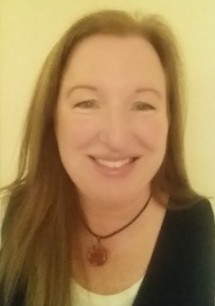 Charles
Sturt University (CSU) research into previous censuses has provided fresh
insights into multilingual speakers' ability to participate in Australia where
English is the main language.
Charles
Sturt University (CSU) research into previous censuses has provided fresh
insights into multilingual speakers' ability to participate in Australia where
English is the main language.
Ms Helen Blake (pictured), a PhD student in CSU's Research Institute for Professional Practice, Learning and Education (RIPPLE), examined Australian Bureau of Statistics (ABS) data for over 19 million people contained in the 2006 and 2011 censuses.
"I investigated whether proficiency in the language of the country of residence has implications for an individual's level of education, employability, income and social integration," Ms Blake said.
"My findings challenge the 'monolingual mind-set' by demonstrating that outcomes for multilingual speakers in education, employment and income are higher than for monolingual speakers.
"The results of this study can be used to encourage a shift in view towards multilingualism in English-dominant countries as the findings recognise the value of multilingualism and diversity in an increasingly globalised world."
Multilingual speakers are defined as people who are capable of understanding and/or producing more than one language; however, they may have different levels of competence in each of the languages they use and in the various ways they use them, be that orally, in writing or signed (International Expert Panel on Multilingual Children's Speech, 2012).
The proportion of Australians who reported speaking a language other than English at home was 21.5 per cent in the 2006 census and 23.2 per cent in the 2011 census. Multilingual speakers who also spoke English very well were more likely to have postgraduate qualifications, full-time employment and higher income than monolingual English-speaking Australians.
However, Ms Blake found that multilingual speakers who reported speaking English 'not well' were much less likely to have postgraduate qualifications or full-time employment than monolingual English-speaking Australians.
"These findings provide insight into the socioeconomic and educational profiles of multilingual speakers," Ms Blake said. "This will inform the understanding of people such as speech-language pathologists who provide support for multilingual speakers. The results indicate spoken English proficiency may impact participation in Australian society.
"The results of this study highlight the importance of supporting multilingualism as well as English proficiency, because English-proficient multilingual speakers had better outcomes than monolingual English speakers."
Ms Blake explained that speech-language pathologists can play a role in supporting English proficiency through enhancing the intelligibility of multilingual speakers.
"Intelligibility relates to the proficiency of articulation, rate, fluency, prosody or conversation breakdown and repair strategies, and 'intelligibility enhancement' is within the scope of practice for speech-language pathologists in the US, Canada, and Australia," Ms Blake said.
"Speech-language pathologists are specialists in speech and behaviour change and have the skills to improve the ability to communicate in English.
"If multilingual speakers believe their intelligibility in English is negatively affecting their employment performance, educational advancement, or participation in everyday activities, they can seek intelligibility enhancement with speech-language pathologists who can determine which aspects of speech most impact intelligibility and tailor a program to suit."





Social
Explore the world of social